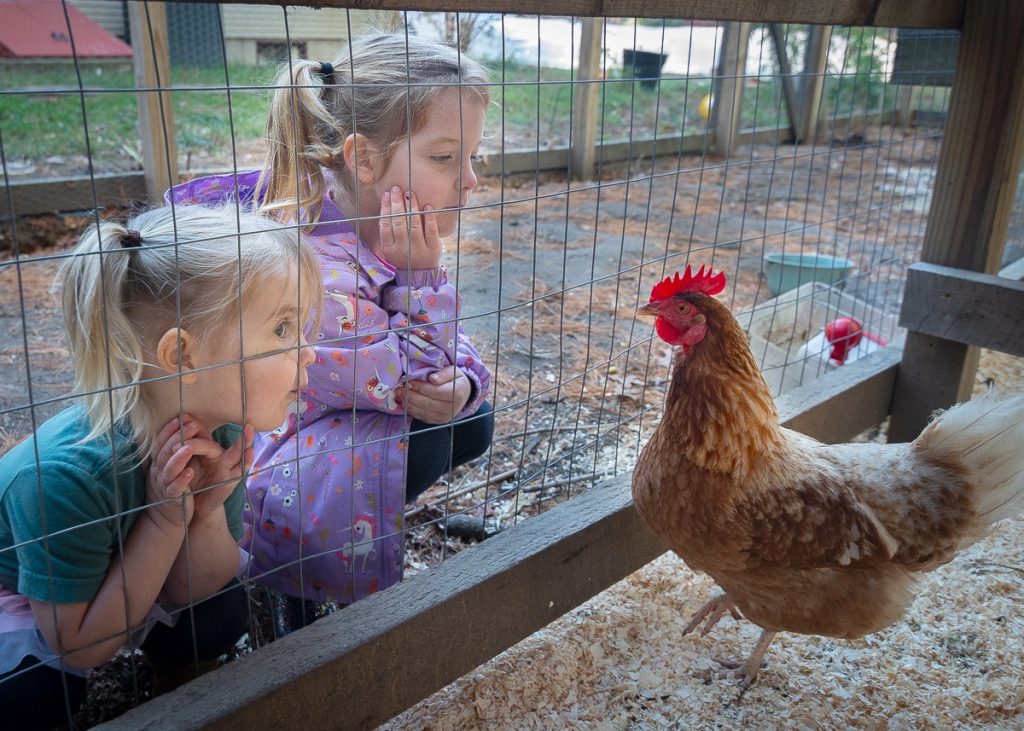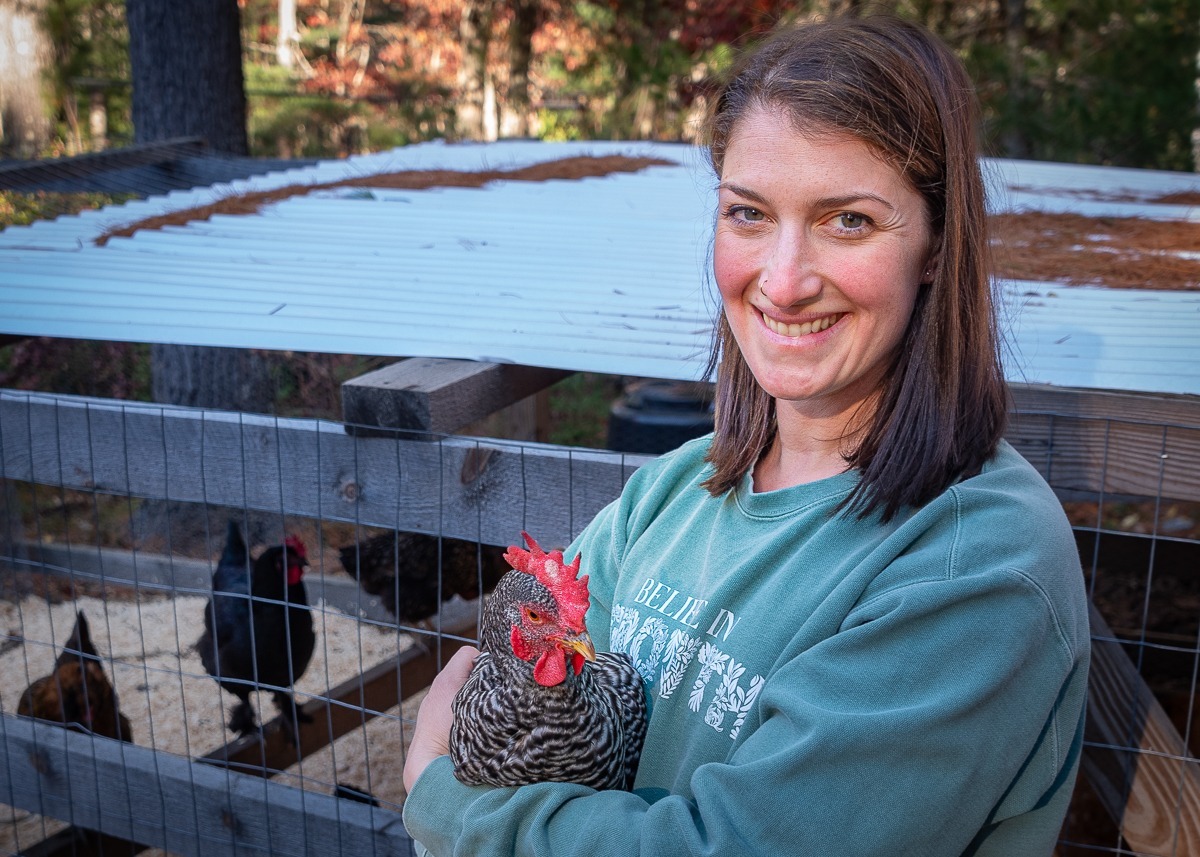Dan Green worries that he might have to get rid of some of his chickens.
He and other members of the Plymouth Agricultural Commission are fighting proposed regulations from the Plymouth Public Health Division that would apply to non-commercial agricultural operations such as raising chickens and keeping goats. The proposed regulations would limit the size of chicken flocks and establish minimum land areas for raising farm animals such as goats and cows.
The rules are being proposed because the Health Division says its small staff is burdened by time-consuming resolutions of complaints from neighbors of people raising animals.
The draft regulations would also include requirements for compost manure piles to be at least 50 feet from the street and 100 feet from neighbors’ property lines, 100 feet from a private well, and 400 feet from a public well.
“I own an acre of land, and I don’t even know if there’s a single square foot of property at my house that would fit the setback requirement,” said Green, who along with his wife Briana runs Green Acre Flower Farm on Boot Pond Road.
He and others say the proposed rule changes are too strict.
“If you’ve got a backyard in Plymouth and you’re not a multimillionaire with three acres of property, you really can’t do much under these regulations,” Green said.
On Monday, the five-member Agricultural Commission voted unanimously to ask the Massachusetts Department of Agricultural Resources whether the Health Division has the authority to impose regulations on the raising of livestock. At present, there are only regulations governing the keeping of horses.
The board also voted to have its newly elected chair and vice chair, Rebecca Nutter and Bruce Howard, meet with town officials to discuss the proposed regulations once it has received advice from the state.

Town Manager Derek Brindisi said Tuesday that he had yet to hear from the Agricultural Commission after its meeting.
“It’s very clear in the statute that Boards of Health can implement regulations,” Brindisi said, citing the state’s public health law.
Barry Potvin, chair of the Plymouth Board of Health, said in an email that he does not believe the board would have to approve any regulations proposed by the Division of Public Health.
“We’ve never been asked to do anything relating to agricultural regulations,” Potvin said, referring to the six-year period he has served on the board.
Brindisi said the regulations could either be approved by the Board of Health or as a bylaw by Town Meeting.
Green is also concerned about the restriction on the size of chicken flocks. The proposed regulations would impose a limit of 10 chickens per acre. Green has a flock of 24, so he is worried that he would have to lose 14 chickens. Properties under half an acre would be allowed up to four chickens.
In response to written questions from the Agricultural Commission, the Public Health Division wrote that one reason for the proposed regulations is to “mitigate the number of time-consuming complaints that an already understaffed division handles each year. These complaints require numerous phone calls, site visits, multiple letters, and neighbor dispute mediation.”
The Public Health Division said that since 2018, it has fielded between 11 and 27 complaints a year, with 17 so far in 2024.
Jack Risso, another member of the Agricultural Commission, said that town officials told the commission in an Oct. 30 meeting that all but “a couple” of the 17 complaints were mediated successfully.
“If that’s the case and they were alleviated, what do they need regulations for?” Risso wondered. “I think it goes totally against the Right to Farm bylaw.”

Plymouth’s Right to Farm bylaw, enabled by the state’s Right to Farm Law, puts residents on notice that there may be noise or dust or odors resulting from normal farming practices. It used to apply only to properties of more than five acres, but in 2022 Town Meeting made it applicable to all properties.
“It is hereby determined that whatever impact may be caused to others through the normal practice of agriculture is more than offset by the benefits of farming to the neighborhood community, and society in general,” the bylaw says.
The Commission sent an Oct. 9 letter to the Health Division saying that because the town already has a nuisance bylaw, additional regulations are unnecessary and that discussions about them had to take into account the Right to Farm bylaw.
Howard said he had been working with town staff to find an alternative to the proposed regulations. He calls it a compact similar to the Mayflower Compact the Pilgrims signed to govern their affairs.
“It is intended to be an agreement between farmers and the town to farm responsibly and ethically in keeping animals,” Howard said. “This is a real challenge in Plymouth, where we have rural areas with large acreage as well as small properties, all of which wish to keep animals of different types, chickens being most prominent.”
Howard said the Agricultural Commission received a “chilly reception” for the proposed compact from town officials.
Brindisi said he considered that proposal “loose guidelines” in case a neighbor complained about someone raising animals. The Agricultural Commission would mediate between the two parties, he said.
“Which sounds good, until you get to the point where the issue hasn’t been resolved,” Brindisi said, adding that there is a philosophical difference between the Agricultural Commission and the Public Health Division, also referred to as the Department of Health.
“The Agricultural Commission thought of this as more aspirational and hoping that abutters can get along,” Brindisi said. “The Department of Health is saying that in order to ensure that these animals are being maintained in a safe and sanitarymanner, we need regulations.”
Howard said that if the rules go through, some people raising chickens might not declare their operation, and would be unreachable by health officials if avian flu or other diseases were to spread.
“My concern is that without good communication between the town and all of the farmers in town, that if there was a serious health concern that the town would be challenged in communicating effectively with those keeping livestock throughout the town,” he said.
Nutter said she would have to shut down her Montessori animal encounter day camp, Sunny Brook Menagerie, if the regulations are implemented.
Nutter’s backyard menagerie includes her Miniature Highland cow, Nestle, two rabbits, three ducks, and five large-breed goats. They coexist on her .89-acre property. Under the proposed rules, mini cows such as Nestle would require 10,000 square feet of usable land. Five large-breed goats would require 30,000 square feet.
“What’s shocking to me is that I’ve never had a problem with anything,” Nutter said. “I walk Nestle around the neighborhood. People come out and pet her. We take the goats for walks at camps and it’s like a parade and people are taking pictures.”
Many Plymouth farmers buy their feed at Morrison’s Home and Garden, on Long Pond Road. The store sells about 770 bags of adult chicken feed a month, enough to feed 6,400 chickens, said general manager Ross Prentice. The proposed regulations would make it hard for families to grow their own food, Prentice said.
“Making it illegal for people to grow their own food just doesn’t sit right,” he said.
Fred Thys can be reached at fred@plymouthindependent.org

